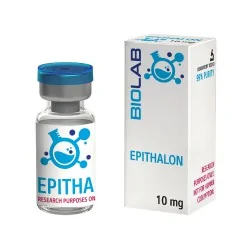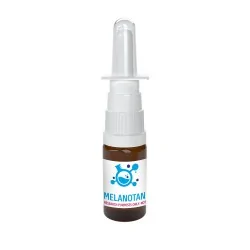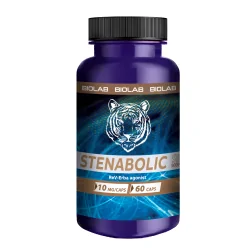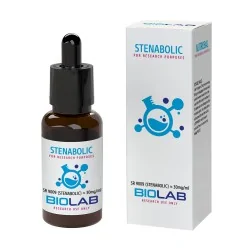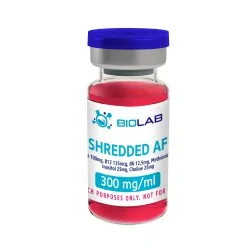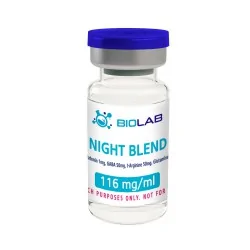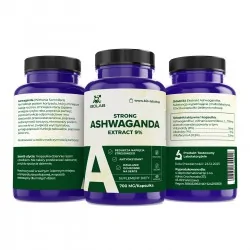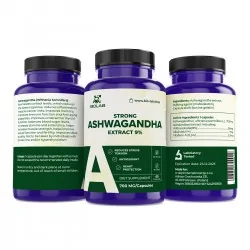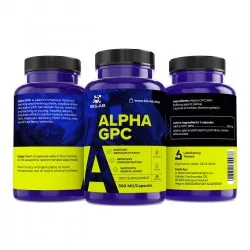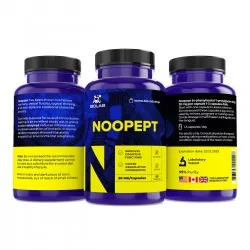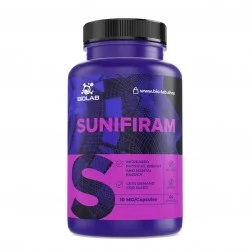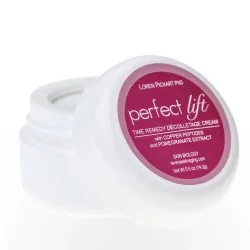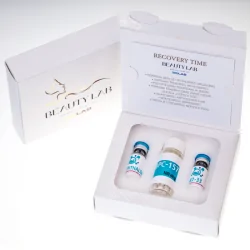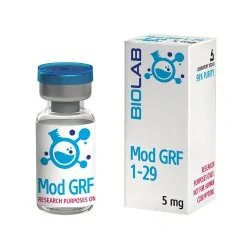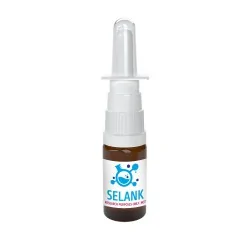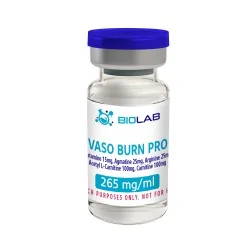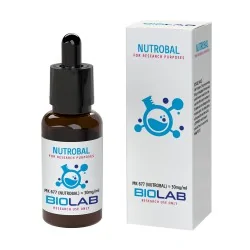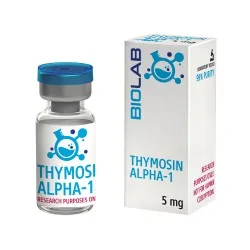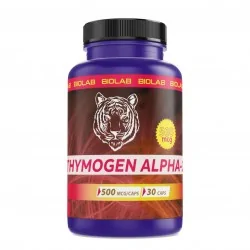-
Peptides
Peptides
back
-
- show all
-
-
Purpose
Return
- Peptides for bodybuilding
- Biomimetic peptides
- Peptides for the gym
- Peptides for bulk
- Natural peptides
- Peptides for joints
- Peptides for reduction
- Peptides for fat burning
- Peptides for weight loss
- Peptides for the muscles
- Peptides for regeneration
- Peptides for libido
- Peptides for injuries
- Peptides for athletes
- Peptides in tablets
- Peptides in injection
- Spray peptides
-
Type
Return
- BPC 157
- hgh
- ghk-cu
- ghrp-6
- ghrp-2
- grf
- tb-500
- oxytocin
- semax
- melanotan
- pt-141
- epithalon
- selank
- thymosin
- cjc-1295
- ipamorelin
- peg-mgf
- adamax
- kisspeptin
- dsip
- sermorelin
- n-acetyl
- arg-bpc
- thymalin
- 5-amino 1MQ
- alarelin
- mots-c
- igf-1 Lr3
- IGF DES
- GHRP2
- Fragment
- CJC DAC
- Adamax
- Cortagen
- Snap 8
- B7-33
- Melanotan 2
- Selank
- Thymosin alpha 1
- Mots
- VIP
- LL-37
- Livagen
- P-21
- KPV
- Ara 290
- L21
- Acth 1-39
- matrixyl
- TRH
- Larazotide acetate
- glp-1
- GC-1 SOBETIROME
- TB-4 FRAG+BPC-157 ARG
- AOD-9604
- cardiogen
- prostamax
- pancragen
- bronchogen
- retatrutide
- Thrombin peptide Tp508
- SLU-PP-332
- LIPOTROPIN
- THYMOGEN ALPHA-1
- Nutrobal
-
Purpose
Return
-
Peptide calculator
-
- show all
-
- Sarms Sarms back
-
- show all
-
Produkty
- Amino acids Amino acids back
-
- show all
-
Aminokwasy
-
- show all
-
Produkty
- Supplements Supplements back
-
- show all
-
Supplements
-
Purpose
Return
- Weight Loss Supplements
- Supplements for memory and concentration
- Energy supplements
- Hair and nail supplements
- Cholesterol supplements
- Supplements for the complexion and skin
- Sleep supplements
- Gym supplements
- Supplements for reduction and sculpture
- Eye and vision supplements
- Supplements for stress and nerves
- Supplements for regeneration and fatigue
- Strength and fitness supplements
- Joint supplements
- Liver supplements
- Acne Supplements
- Kidney supplements
- Knee supplements
- High blood pressure supplements
- Cellulite supplements
- Bone supplements
- Tendon supplements
- Supplements for potency and libido
- Dopamine supplements
- Serotonin supplements
-
Type
Return
- Ashwagandha
- Omega 3
- Vitamin D3
- Magnesium citrate
- N-Acetylcysteine
- Biotin
- Collagen
- L-Theanine
- 5-Hydroxytryptophan
- Forskolin
- Resveratrol
- Coenzyme Q10
- PQQ
- Rhodiola rosea
- Canna
- Kava Kava
- TUDCA
- Cholinolytics
- berberys
- inozytol
- sodium butyrate
- lactoferrin
- selenium
- cordyceps
- Quercetin
- lions mane
- glycine
- curcumin
- alpha lipoic acid
- shilajt
- apigenin
- dim
- chasteberry
- baikal thyroid
- reishi
- pycnogenol
- phosphatidylserine
- chromium picolinate
- astragalus
- nad+
- tulsi
- egcg
- magnesium citrate
- nalt
- pana ginseng
- synephrine
- zinc picolinate
- cherry tart
- magnesium taurate
- magnesium l-threonate
- adaptogens Return
-
Purpose
Return
-
- show all
-
Produkty
- Nootropics Nootropics back
-
- show all
-
Nootropy
-
- show all
-
Produkty
- Beauty Beauty back
-
- show all
-
- Preparation Preparation back
-
- show all
-
- Pre-workouts
- Slimming preparations
- Preparations for the joints
- Acne preparations
- Preparations to strengthen the body
- Preparations for the sinuses
- Erection preparations
- Hair preparations
- Preparations for the liver
- Nail preparations
- Sleep preparations
- Intestinal preparations
- Circadian rhythm disorders
- Preparations for the heart
- Preparations for libido
- Preparations for malnutrition
- Preparations for sedation
- Preparations for strengthening
- Preparations for the kidneys
- Fat burning preparations
- Preparations to reduce appetite
- Preparations for growth
- Preparations for depression
- Preparations for energy
- Bone preparations
- Preparations for muscle mass
- Skin bronzing preparations
- Skin rejuvenating preparations
- Preparations for the condition
- Preparations for the work of the brain
- Anti-aging preparations
- Preparations for regeneration
- Growth hormone replacements
- Injury preparations
thymosin
Showing 1-2 of 2 item(s)- Type
-
- BPC 157
- hgh
- ghk-cu
- ghrp-6
- ghrp-2
- grf
- tb-500
- oxytocin
- semax
- melanotan
- pt-141
- epithalon
- selank
- thymosin
- cjc-1295
- ipamorelin
- peg-mgf
- adamax
- kisspeptin
- dsip
- sermorelin
- n-acetyl
- arg-bpc
- thymalin
- 5-amino 1MQ
- alarelin
- mots-c
- igf-1 Lr3
- IGF DES
- GHRP2
- Fragment
- CJC DAC
- Adamax
- Cortagen
- Snap 8
- B7-33
- Melanotan 2
- Selank
- Thymosin alpha 1
- Mots
- VIP
- LL-37
- Livagen
- P-21
- KPV
- Ara 290
- L21
- Acth 1-39
- matrixyl
- TRH
- Larazotide acetate
- glp-1
- GC-1 SOBETIROME
- TB-4 FRAG+BPC-157 ARG
- AOD-9604
- cardiogen
- prostamax
- pancragen
- bronchogen
- retatrutide
- Thrombin peptide Tp508
- SLU-PP-332
- LIPOTROPIN
- THYMOGEN ALPHA-1
Filter By
Price
Price
-
€39.00 - €90.00
Active filters
Thymosin - Your ally in the fight for immunity
The scientific world has long been actively studying and using three compounds with biological activity in medicine: thymosin alpha-1, thymosin alpha-4, and thymosin alpha-7. But what exactly is hidden under these mysterious names, and why might one of them be particularly important for your immunity? Let's start at the beginning.
What is thymosin?
"Thymosin - what is it?" is usually the first thought among people who hear about it for the first time and have not yet discovered the power of peptides. So we answer:
Thymosin - a peptide hormone, responsible for regulating the function of the immune system. The thymus gland, a rather unusual - because it atrophies with age (!) - lymphoid organ, is mainly responsible for its production. The highest activity of the gland is around 2-3 years of age, after which the organ is gradually replaced by adipose tissue. It has been proven that this is related to the activity of sex hormones, the increase of which induces precisely the atrophy (involution) of the thymus.
Alpha-1 thymosin - functions
In the immune context, alpha-1 thymosin plays the greatest role. It is it,
through its stimulating properties on helper T lymphocytes, that has a unique effect on our immune system and is a proven support for fighting many chronic diseases. To date, it has been studied in the context of conditions such as cystic fibrosis, tuberculosis, acute respiratory failure and lung infections, chronic hepatitis and cancer, septic shock and, last but not least, covid-19.
The peptide chain of thymosin alpha-1 consists of as many as 28 amino acids. The substance was first presented to the world in 1972, when it was successfully isolated from thymus tissue, whence it also took its name (Latin: thymus=thymus). Since then, it has been subjected to regular testing by scientists around the world, with results indicating that it has an exceptionally high safety profile. The only side effect may be the local occurrence of mild irritation at the site of administration.
Thymosin - uses
When it comes to its effects, thymosin primarily stimulates the maturation of lymphocytes, the correct number of which is crucial for the body's immunity. Thymosin has a specific function as a so-called immunomodulator, and thanks to its antioxidant properties it supports the treatment of pancreatic lesions, including those caused by diabetes.
Additionally, thymosin has been shown to increase the production of NK cells and TNF- alpha, prevent the replication of some of the dangerous viruses (including hepatitis B and C), relieve the symptoms of diseases and support their treatment (including the aforementioned covid-19, but also Lyme disease or chronic fatigue syndrome). It can also help reduce the toxicity of chemotherapy and thus alleviate its side effects. In addition, this peptide can be used as a support in the treatment of year-round allergies.
Diagnosing Thymosin Deficiency
To check for potential thymic dysfunction, imaging tests such as a chest MRI or CT scan are standard. Very rarely, however, a test of the hormone's concentration in the blood is performed, by the difference in measurement depending on the disease undergoing.
Thymosin deficiency can be influenced by a number of factors, among which it is worth mentioning premature puberty (which also means faster thymic atrophy), congenital absence of the thymus gland, oncological and hematological conditions, but also a stressful or stimulant-laden lifestyle, as well as frequent use of glucocorticosteroids and antibiotics.
What can indicate thymosin deficiency?
The main symptom of too low thymosin levels will be markedly impaired immunity. In addition, in the case of thymoma (that is, cancer of the thymus gland), such symptoms as tightness in the chest, coughing, shortness of breath, nausea or arthritis are observed.
Thymosin - preparations containing thymus extract
Thanks to its positive effect on the functioning of the immune system, more and more people are reaching for preparations whose main ingredient is thymus extract. It works exceptionally well in both primary and secondary immune deficiencies.
Thymosin preparations are also able to stimulate cell renewal, making them a common choice for athletes looking to speed up post-workout recovery.
Thymosin dosage and storage
Alpha-1 thymosin has a very high tolerance level even at doses dozens of times higher than those recommended. Scientific sources indicate that for best effect it should be applied subcutaneously every three days, and a single dose should be about 1.5 mg. In turn, the recommended treatment time ranges from 2 weeks to 3 months.
In powdered form, you can store thymosin at room temperature for up to three weeks. The finished preparation, on the other hand, should be used for up to seven days, provided the storage temperature has not exceeded 40 degrees. In either case, if you are unable to use the preparation within the specified time frame, it should be frozen.
.
Newsletter
SIGN UP AND STAY UP TO DATE!
We specialize in wholesale and retail supply of high quality peptides.
((modalTitle))
((confirmMessage))
((title))
- Preparation Preparation back
- Beauty Beauty back
- Nootropics Nootropics back
- Supplements Supplements back
- Amino acids Amino acids back
- Sarms Sarms back
-

